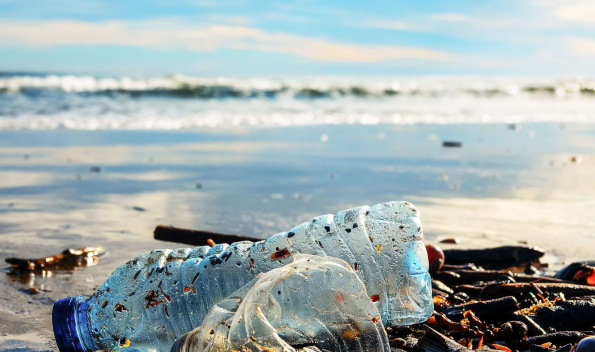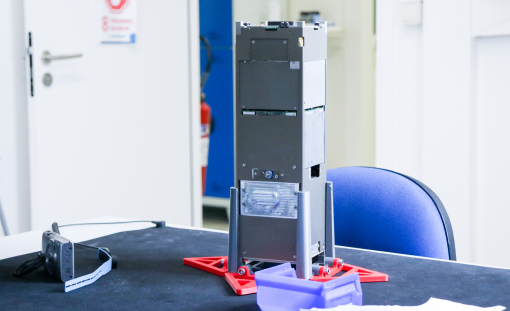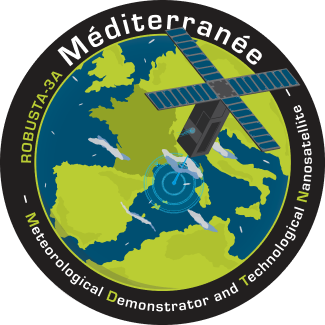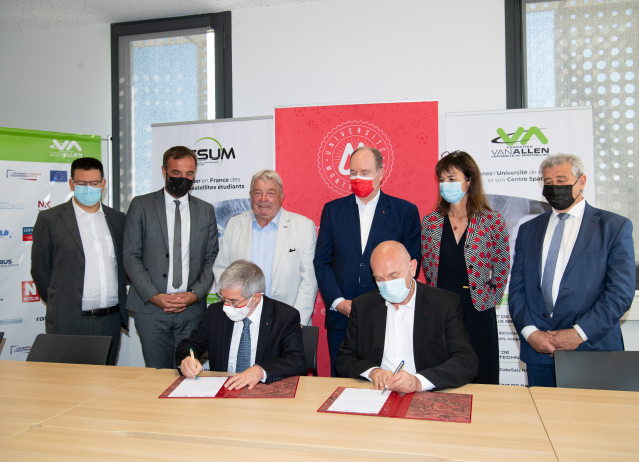Act for the environment
The Van Allen Foundation is committed to taking practical steps for the Environment.
Detect plastic waste in the Mediterranean
Launched in early 2021 in collaboration with the IEEE GRSS (Geoscience and Remote Sensing Society, United States), the Van Allen Foundation’s Call for Ideas was aimed at inspiring innovative projects using space technology, for the detection of waste, particularly plastic waste, in the Mediterranean Sea.

This initiative, led by a Scientific Committee made up of international experts, is supported by the NICOLLIN Group, Grand Mécène (Major Donor) of the Foundation.
The long-term challenge is considerable: to define and conduct a practical environmental mission with engineers and students from the Montpellier University Space Centre (CSUM), using nanosatellites, to serve a common goal that impacts us all.
The Scientific Committee, moderated by Mr Jean-Louis Fellous, former Executive Director of COSPAR (World Committee for Space Research), selected the “RESPOGLI”project, submitted by CEFREM, the research laboratory of the University of Perpignan and CNRS. The scientific process aims firstly to study the spectral signatures of the different plastics and secondly to study the evolution of these signatures over time, as they are colonised by living organisms.
Thanks to the support of the NICOLLIN Group, a company committed to environmental issues, the Van Allen Foundation is providing funding for this project.
Improve meteorological modelling for forecasting Cévenol events
In order to predict these Cévenol events and to have a more accurate weather forecast, the Montpellier University Space Centre (CSUM) is building an experimental nanosatellite in collaboration with Météo France, the IGN, the ENSTA Bretagne engineering school and the port of Sète-Frontignan, and with the financial support of the Van Allen Foundation and the CNES.


The Méditerranée project consists of equipping ships that regularly cross the Mediterranean with GNSS receivers. The signals from these satellite-positioning systems are affected by water vapour in the troposphere. It is therefore possible to deduce from this the amount of water vapour accumulated over the Mediterranean and likely to cause a Cévenol event. In order for this data to be useful, it is necessary to transmit it as soon as possible to end-users. That is the role of CSUM’s ROBUSTA 3A nanosatellite that will collect data and transmit it to partners, providing valuable information on the risks and their location.
Today, the engineering model of ROBUSTA 3A has just been assembled. It will be ready for launch in 2023.
A commitment, alongside the Principality of Monaco to sustainable cooperation
During the visit of His Serene Highness Prince Albert II of Monaco to the CSUM on 15 June 2021, a joint declaration was signed between the Principality of Monaco and the University of Montpellier:

On the occasion of H.S.H. Prince Albert II’s visit, the Principality’s Ministers and scientific leaders determined to pursue their dialogue with the University of Montpellier and the Van Allen Foundation to build lasting cooperation.
This cooperation may take the form of partnerships on key global and Mediterranean issues.
Challenges related to the safeguarding of marine biodiversity, urgent action to be taken in the face of climate change, and pollution, in particular through developments in the use of nanosatellites.”
